France Warns Iran Against Escalating Gaza War Across Region
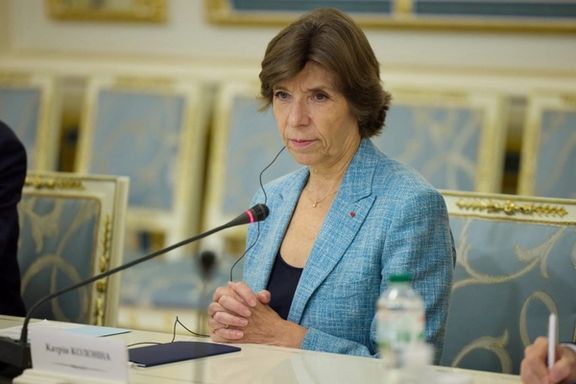
France's foreign minister said she had told her Iranian counterpart on Thursday that Tehran would bear a heavy responsibility if the conflict in Gaza spreads across the region.

France's foreign minister said she had told her Iranian counterpart on Thursday that Tehran would bear a heavy responsibility if the conflict in Gaza spreads across the region.
"Meeting today with my Iranian counterpart in the form of a warning: the extension of the current conflict in Gaza would not benefit anyone, and Iran would have a heavy responsibility," Catherine Colonna said after a face-to-face meeting in Geneva with Hossein Amir-Abdollahian.
The conversation was the latest between French and Iranian officials as Paris looks in particular to defuse tensions between Israel and Iran-backed Hezbollah.
The United States has also reportedly asked Chinese President Xi Jinping to use his influence to persuade Iran not to engage in escalation. Iranian-backed militias in the region have launched more than 50 drone and rocket attacks against US troops stationed in Iraq and Syria since the October 7 attack on Israel. The US military has retaliated by launching three air strikes against Iran's Revolutionary Guard targets in eastern Syria.
Ties between France and Iran have also been strained in recent months over what Paris has said are arbitrary arrests of four of its citizens that it says are equivalent to state hostage taking.
"The minister finally called for the immediate release of the four French nationals still arbitrarily detained in Iran and whose situation is extremely worrying," the foreign ministry said in a separate readout of the meeting.
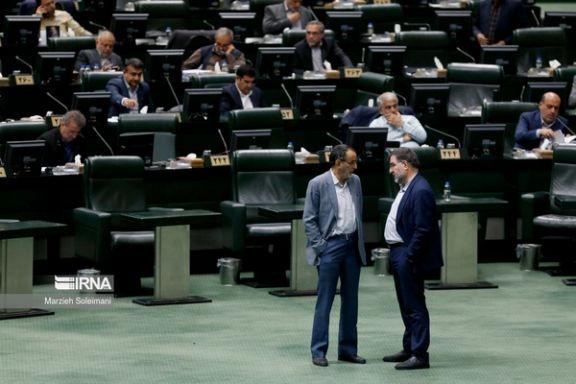
Concerns over a breach of Iranians’ privacy are growing as hardliners in the government defend a recent legislation to monitor peoples’ lifestyles online.
The controversial legislation, a clause of Article 75 of the Seventh Development Plan, mandates the Ministry of Islamic Guidance to launch a database consisting of information collected from online activities of individuals for "continuous monitoring and evaluation of cultural indicators, people’s lifestyles, media influence, and communications."
The legislation also requires government agencies and all domestic websites and platforms, including online businesses, to continuously feed their user information to the database.
Media and individuals on social media have extensively criticized the legislation that the parliament approved on November 8 but has yet to be endorsed by the constitutional watchdog, the Guardian Council.
Detractors, including legal experts, express concerns over the lack of assurance regarding the safety of individuals' sensitive personal information, despite a reference to Article 25 of the Iranian Constitution in the legislation. Article 25 explicitly prohibits the government from engaging in spying on citizens' private communications, “unless when required by law.”
Critics argue that this provision would empower any judge to override individuals' right to privacy whenever authorities, including security forces, decide to obtain private information and data derived from an individual's online activities across various platforms. This encompasses information related to travel and transportation, as well as online searches and downloads.
An earlier version of the proposed legislation explicitly outlined that the collected data would be utilized by authorities to "consolidate the Islamic-Iranian lifestyle," aiming to ensure that people's lifestyles align with the perceived Islamic standards of the regime.
In an interview with Ham-Mihan newspaper, Ali Yazdikhah, the deputy chairman of the parliament’s cultural committee, insisted that only "macro-data" would be stored in the database, emphasizing that it would not include information on individual citizens' lives and lifestyles. However, he acknowledged that data inputted into the system, such as individuals' interests or participation in religious ceremonies like Ashura, could be utilized to assess the general interest "in [Islamic] values and sanctities."
Several critics, including lawmaker Moeeneddin Saeedi, who opposes the bill, argue that the more the state engages in cultural engineering, the greater resistance it will encounter from the public. Saeedi stated, "Experience has proven that we have failed to advance indicators of culture with these [engineering] methods," he said during the debate on the parliament floor.
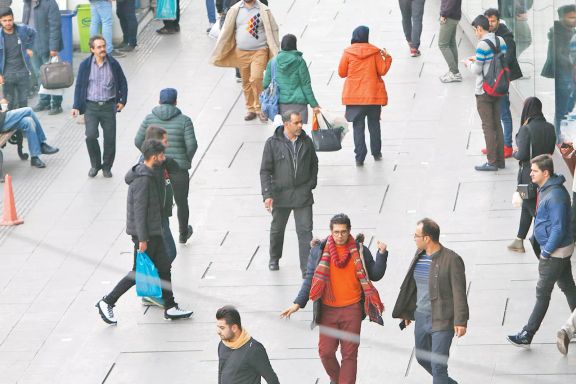
As an example, Saeedi pointed out that the current year's budget law stipulates that mosques conducting prayer congregations twice daily should receive financial incentives. However, he contended that the effectiveness of such measures in encouraging regular prayer is questionable, as over 75 percent of mosques in the country remain inactive due to insufficient attendance, despite the authorities' efforts to revitalize them.
Renowned journalist and social researcher Abbas Abdi told Ham-Mihan newspaper that the gathering of data for social research, if indeed the intended purpose of launching a database, is not inherently new or objectionable. However, he argued that government agencies lack the competence to carry out reliable research projects, and they are neither genuinely interested in nor adequately prepared to discover people's preferences or to publish research results to public.
He highlighted that authorities routinely withhold statistics on sensitive topics, including relationships between men and women, alcohol consumption, addiction, birth rates, age of marriage, and suicide.
“Suppose that they conduct research [based on the data available in the database] about dress code [=hijab], … They can’t publish the results because they are afraid people’s views and beliefs [will be known],” he said.
“However, if they intend to monitor people’s private lives and gather personal information, this would only be for the purpose of controlling and intimidating the public,” he added.
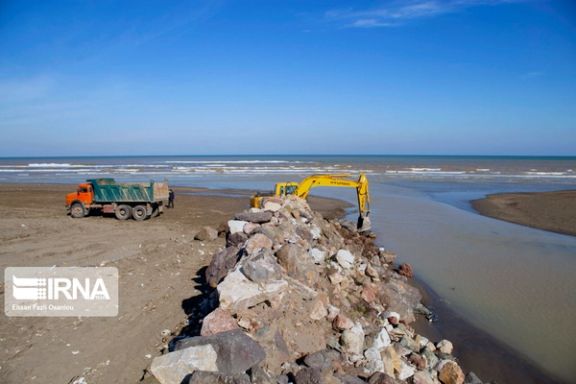
Ahmad Tavakoli, the head of the Civil Coordination in Mazandaran Province, has warned about a significant decline in the Caspian Sea water level, dropping by about four meters since the 1970s.
Tavakoli attributed the change in the world's largest lake to “substantial precipitation and the annual water flow", Iran recently blaming Russia for the crisis, emphasizing the closure of vital entrances, especially the Volga River.
Ali Salajegheh, the head of the Iranian Department of Environment, said the ecological challenge posed by the situation reveals a reduction of approximately one meter over the past 4-5 years, with an average annual recession of 20 centimeters.
His rare criticism against Russia, one of Iran's strongest allies, raised concerns about the ecological impact of dams constructed on the Volga River and the potential damage to delicate ecosystems relying on the Caspian Sea's waters
According to the Central Asia-Caucasus Analyst, it says: "This will have significant and serious implications, including a decline of the sea water level, a considerable retreat of the sea and increase of the land and coastal area especially in upstream countries (Russia and Kazakhstan), challenges to the operation of ports and shipping, as well as environmental consequences, particularly the drying of protected areas and wetlands."
It warned that the water level of the Caspian Sea has decreased by one meter in recent years and could drop by 9 to 18 meters by the end of the 21st century.
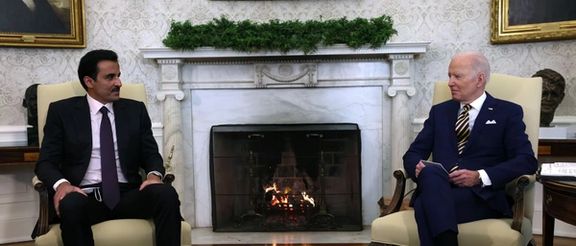
The world is well aware of Qatar’s critical mediating role for the release of Israeli and foreign hostages taken by Hamas during its October 7 attack on Israel.
President Biden and the Qatari emir spoke over the phone on November 12 about Qatar’s mediation with Hamas and Biden thanked the emir for his intervention on behalf of the hostages. The phone call took place just after the November 11 joint Arab League-Islamic (OIC) Conference summit in Riyadh.
The summit, a display of Arab and Islamic fraternity, nonetheless, seemed to have achieved little practical outcome. A year ago, no one foresaw that Arab leaders would welcome two “rogue” (per the common parlance of the US foreign policy apparatus) actors into their midst: Iran (Raisi) and Syria (Assad), aka the Axis of Resistance, along with Qatar’s Sheikh Tamim bin Hamad. In fact, between 2017 and 2021, the Saudis and the Gulf Cooperation Council (GCC) treated Qatar, a founding member of the club, like a “renegade.”
Arguably, Hamas’ 7 October attack and the abduction of Israeli and foreign national hostages, was the historic event that placed Qatar’s sovereign prince, Tamim bin Hamad on par with Muhammad Bin Salman (MBS) of Saudi Arabia at the Riyadh summit and underscored the key role that they both play at this critical juncture.
Qatar’s participation at the Riyadh summit raised hopes that the Arab leaders would be able to set a practical path forward about the Israel-Gaza war. The last time that Arab leaders arrived at such a practical consensus was at the 2002 Beirut Summit when they set up a comprehensive “agenda for peace” in the Middle East. ‘The Arab Peace Initiative’ called for the implementation of UNSCR 242, offered a rather nuanced revision of the Oslo Accord, reiterated its commitment for a two-state solution, and called for normalization of relations with Israel.
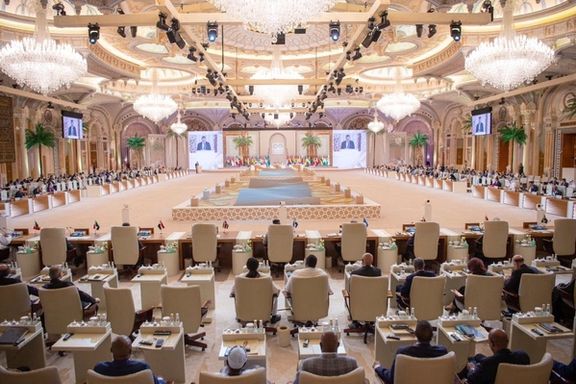
In 2002, Qatar was a collegial member of a cohort that wished to set out on a productive path in the ever-stalling Israeli-Palestinian Peace Process. Two decades later, Qatar exalts in a diplomatic purgatory between anti-Israel, ultra-right Islamist “rogue” actors like Hamas and the Taliban, and the rest of the world. Qatar’s evolving foreign policy has thus broken with the standards of Arab conservative monarchies’ statecraft.
Qatar’s wish to be a master of its own house and commander of its own fate is no secret. Since the mid-1990s that emir Tamim’s father, emir Hamad, took control of the small monarchy in a coup, scholars and experts have been grappling to make sense of the many “contradictory” paths that Qatar has been taking. Some even called Qatar a major player in an emerging Arab Cold War.
Despite all the ups and downs in Qatar’s foreign policy, the year 2015 was a pivotal year. With the civil war unraveling Syria and Libya, Qatar proactively aligned itself with Turkey’s Erdogan and sought to consolidate her place as a patron of Hamas. Qatar’s ability to assert itself could not have happened without its growing status as a contender in global energy security that controls about fourteen percent of global natural gas reserves. This newly found independence as an energy superpower may have to do with its increasingly assertive tone vis-à-vis Saudi Arabia and the GCC.
Research and commentary on Qatar’s rise and its “contradictory” foreign policy paths has been confusing and contradictory. Indeed, Qatar studies’ enterprise uncannily resemble the making-sense-of-Iran industry in DC’s beltway. Notwithstanding concerns that Qatar and other Gulf countries could be influencing research on their foreign policy through generous donations to US universities, two camps have risen to explain and critique the evolution of Qatar’s foreign policy over the past twenty years.
The first school argues that Qatar’s eccentric foreign policy diplomacy should be understood in the wake of several transformational shifts that revolutionized the region’s power dynamics between 1992 and 2010: Iraq’s invasion of Kuwait and its eventual expulsion, the fall of Saddam as a result of the 2003 US invasion, and the Arab Spring. Since 1990, they argue, Qatar has endeavoured to achieve a status equal to that of Saudi Arabia. Qatar apologists cite its indispensability to any future Middle East Peace considering the Israel-Hamas conflict.

Qatar critics consider Qatar’s regional influence, acknowledge its domestic challenges and insecurities, and point out its regional and transnational aspirations. They cite Qatar’s catalogue of nonconformities as evidence of a state seeking hegemony through collusion with a rogue regional state (Iran) and the patron of non-state actors (Hamas and Hezbollah), as well as Libyan and Syrian armed factions.
Qatar has slowly pivoted toward, in order of importance, the US, Iran, Turkey, and has sought to be the patron of Hamas, the Taliban, and several armed Sunni Islamist factions in Syria and Libya. Despite Qatar’s opposition to Assad’s regime, its very rivalry with Saudi Arabia has brought it closer to Iran that is at once Hamas’ other patron and Saudi Arabia’s rival in the region.
This is not a policy of keeping “your friends close” and “your enemies closer.” Qatar’s national security doctrine seems to hinge on one pivot: to elevate Qatar into a global middle power above the fray of an ever volatile interplay between Qatar’s neighbours and their regional adversaries. Meanwhile, Qatar declares itself the friend of everyone, taking for granted the good graces of the US, its chief geostrategic and security ally.
Such a stance indeed allowed Qatar to play an important role as a mediator between various parties and ostensibly as a “devil’s advocate.” Qatar hosted the US-Taliban negotiations between, first, Trump, and, then Biden’s administrations in Doha. As a result, the Biden administration’s rushed and disastrous withdrawal from Afghanistan and the fall of the country back the Taliban. Qatar played a similar mediating, “Devil’s’ advocate” role between the Mullahs of Iran and the Biden administration in the case of the release of US dual nationals from Iranian prisons. During those negotiations the US allowed South Korea to release six billion dollars of Iranian funds from its banks to be funnelled back to Iran through Qatar.
Nurturing such a comradery with “rogue” actors like Iran and Hamas has hardened Qatar’s approach towards normalization between Israel and her GCC neighbors. Qatar’s reservations against the Abraham Accords must thus been seen in light of its historical paranoia, the 2017-2021 blockade, and the Kuwait War syndrome combined. The events of 7 October and their aftermath, however, have revealed that Qatar’s unease with the Abraham Accords as well as its patronage of Hamas has more significant repercussions than that of a small state seeking global middle power status.
Whether one lambasts Qatar or accepts it as an egocentric cousin, the remedy that both schools of thought seek is the same: Qatar must be engaged to reduce risks to a resolution of the Arab Israeli conflict.
Qatar’s longstanding paranoia towards Saudi Arabia as well as its Kuwait War Syndrome fears are certainly key in determining the contours of its national security doctrine, that needs further exploration. Such a deep seated, and very well founded, sense of insecurity does dictate henceforth Qatar’s foreign policy decisions, but it could be emboldening anti-status quo actors such as Hamas, Hezbollah, and Iran. In the final analysis, Qatari foreign policy is driven by paranoia, aiming to liberate Qatar from the influence of all regional hegemonic actors in a volatile region. Drawing on John Heller's wisdom in Catch-22 ("Just because you are paranoid doesn't mean they aren't after you"), Qatar's foreign policy appears to be a "Catch-22" diplomacy, with its ultimate outcome only discernible in hindsight.
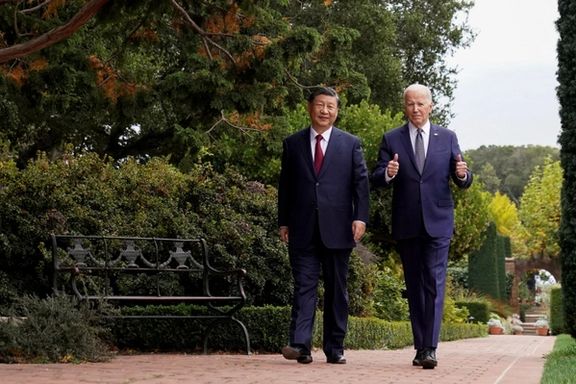
The United States wants to convey to Iran through China that it does not wish to see an escalation of the Middle East conflict, the White House said Thursday.
US President Joe Biden met China's President Xi Jinping on Wednesday and according to Reuters Washington urged Beijing to use its influence to discourage Iran from taking actions that might aggravate the Israeli-Hamas conflict.
China is Iran's main oil customer despite US sanctions, and lends political support to the Islamic Republic. Tehran has a clear policy of maintaining strong ties to Beijing and Moscow as a counterweight to the United States after four decades of anti-American posturing.
John Kirby, the White House's Coordinator for Strategic Communications at the National Security Council, was questioned after Biden’s meeting with Xi about whether China had given the US assurances about the discussions regarding Iran.
"We certainly would encourage them to use those lines to reiterate to the Iranians that we don't want to see a deepening or an escalation of the conflict in the region," Kirby told Reuters.
Meanwhile, Iranian Foreign Minister Hossein Amir-Abdollahian, during an interview with CBS on Wednesday concerning the ongoing conflict between Israel and Hamas, stated: "We did not want this crisis to escalate."
He also denied Tehran’s involvement in an alleged Houthi drone attack in the Red Sea on Wednesday.
In a similar vein, Reuters also reported that the Iranian regime claims it was unaware of Hamas' invasion of Israel on October 7. Hamas leaders later denied the report on their official Telegram channel and in an interview with Iranian State Iranian state news agency IRNA.

Experts are warning about dire consequences of emigration of skilled workforce, but Iran’s vice-president claims there is no cause for worry.
In an interview with a publication affiliated with Sharif University of Technology, where he serves as a professor, Vice-President for Science, Technology, and Knowledge-Based Economy, Rouhollah Dehghani-Firouzabadi, attributed the apparent increase in the emigration of entrepreneurs and the workforce to the protests of the past year and the disruptions caused by the two-year-long Covid-19 pandemic, which impacted the usual procedures for immigrant acceptance.
He justified his assertion by stating, "If, in previous years, 100 people left, the current figure is 200 people. How many experts do we have? Let’s say 2,000.”
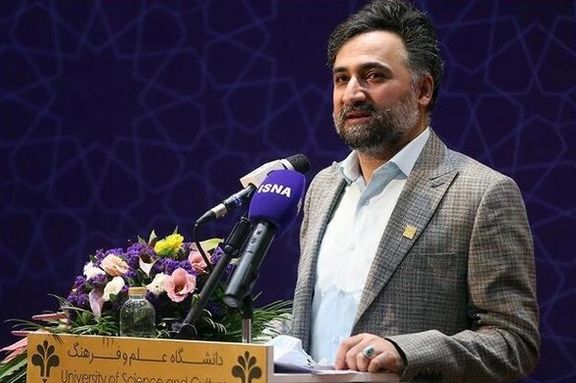
For those who have lost hope of prospects of positive change in the country, especially among the younger generation representing various backgrounds, emigration appears as the sole avenue toward a more promising life. A recent telephone poll by the US-based Statis Consulting revealed that nearly half of Iranian youth aspire to leave the country, driven by a prevailing sense of pessimism regarding their future in the homeland.
In an article last week, EcoIran, an economic news website, highlighted that the emigration of the workforce is no longer confined to physical relocation.The surge in virtual citizenship and remote work, particularly during and after the pandemic, has contributed to a substantial increase in digital emigration among Iranians. This shift has led to the migration of the activities of creative and expert workforce to international businesses,” the article said while warning that the growing desire to emigrate serves as an 'alarm bell' that has been ringing for several years, yet remains largely unheeded.”
“I’m warning that Iranian entrepreneurs and investors are redirecting their production towards neighboring countries that offer stability," Pedram Soltani, an entrepreneur and former deputy chairman of Iran's Chamber of Commerce, said in October in a tweet on the occasion of the National Export Day while also warning that factories either face the challenges of aging infrastructure and deterioration or continue to operate due to monopolistic control over the domestic market.
"Instability, uncertainties across political and social realms, a lack of a promising outlook for the future, high production risks, ad hoc legislation, and a complex and challenging business environment are cited by experts as some of the primary factors driving the migration of skilled labor from the country," Mahmood Olyaiy (Olyaei), an official of Iran's Chamber of Commerce, told the reformist Ham-Mihan newspaper.
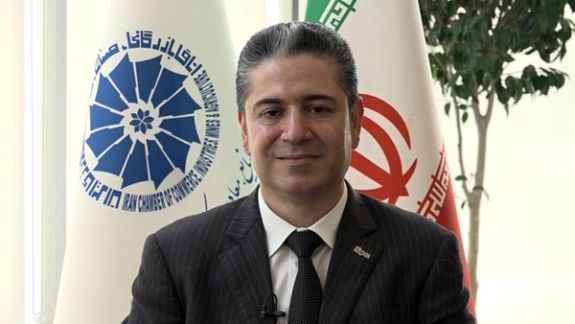
He emphasized that warnings to the government regarding the issues stemming from the emigration of skilled workforce have been ignored and there is a lack of clear policies to avert the potential consequences in the coming years.
Olyaiy added that “self-sanctioning and lack of transparency” cause reluctance in the business environment.
In a speech in September, former President Hassan Rouhani criticized the harsh treatment of the intellectual elite, alleging that some within the government are content that they were leaving the country. “They say let them go so others [who support the hardline government] can take their place,” he said.
In its 2022 report published ten months ago, Iran Migration Observatory (IMO) stated that Iran ranked 17th among countries with the highest number of individuals seeking education abroad and 54th among those with the highest emigration rates."
The IMO, a research institute established during Rouhani’s second presidential term at Sharif University of Technology, tracks data and generates analyses on emigration, with a particular focus on informing policymakers. The IMO released the inaugural edition of the Iran Migration Outlook, providing comprehensive data on Iranian migrants globally, international students, and those seeking asylum.